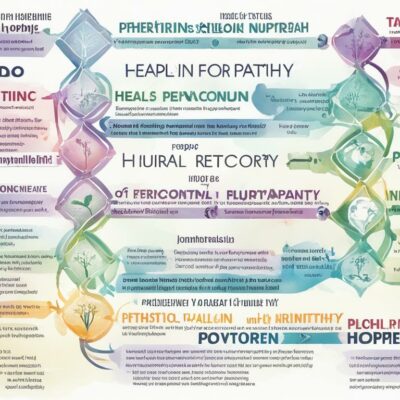
Astaxanthin: Enhancing Eye Health Naturally
Our eyes are invaluable assets, enabling us to experience the world around us. As we age, it becomes crucial to take proactive steps to maintain and improve our eye health. While many turn to conventional supplements, there is a natural and powerful antioxidant that deserves attention – astaxanthin. In this article, we will explore the incredible benefits of astaxanthin and how it can enhance eye health naturally.
Understanding Astaxanthin
What is Astaxanthin?
Astaxanthin is a naturally occurring carotenoid pigment that belongs to the xanthophyll family. It is found in various marine organisms such as algae, shrimp, salmon, and krill. One of the most remarkable features of astaxanthin is its potent antioxidant properties, which are essential for combating oxidative stress in our bodies.
How Does Astaxanthin Work?
Astaxanthin’s unique molecular structure allows it to cross the blood-retinal barrier, reaching the eyes directly. Once there, it targets and neutralizes harmful free radicals that can damage eye tissues. By doing so, it helps protect our eyes from degenerative conditions and age-related eye issues.
The Role of Astaxanthin in Eye Health
Protecting Against Age-Related Macular Degeneration (AMD)
Age-Related Macular Degeneration is a leading cause of vision loss among older adults. Astaxanthin’s potent antioxidant properties can help prevent and slow down the progression of AMD by protecting the macula from oxidative damage.
Reducing Eye Strain and Fatigue
In today’s digital age, eye strain and fatigue have become common issues. Astaxanthin can help alleviate these problems by reducing inflammation and improving blood flow to the eyes, promoting overall eye comfort.
Alleviating Dry Eye Syndrome
Dry Eye Syndrome can cause discomfort and irritation. Astaxanthin’s anti-inflammatory effects can help reduce symptoms and improve tear production, providing relief for those suffering from this condition.
Astaxanthin vs. Other Antioxidants
A Comparison with Beta-Carotene
While both astaxanthin and beta-carotene are antioxidants, astaxanthin’s unique properties make it far more effective in neutralizing singlet oxygen and other harmful radicals, making it a superior choice for eye health support.
Astaxanthin and Lutein: A Synergistic Duo
Astaxanthin and lutein complement each other exceptionally well. Combining these two powerful antioxidants can enhance their benefits and provide comprehensive eye protection.
Natural Sources of Astaxanthin
Marine Life: The Rich Reservoir
Salmon, shrimp, and other marine organisms obtain their vibrant color from the astaxanthin-rich diet of microalgae, making them an excellent natural source of this beneficial compound.
Haematococcus pluvialis: The Microalgae Miracle
Haematococcus pluvialis is a microalga known for its exceptional astaxanthin content. It is often used to produce high-quality astaxanthin supplements.
Choosing the Right Astaxanthin Supplement
Bioavailability and Dosage Considerations
When selecting an astaxanthin supplement, it is essential to choose one with high bioavailability to ensure maximum absorption. Additionally, the appropriate dosage should be determined based on individual needs and health conditions.
Checking for Quality and Purity
Not all supplements are created equal. Look for reputable brands that adhere to strict quality control standards and source their astaxanthin from reliable and sustainable sources.
The Science Behind Astaxanthin
Clinical Studies and Findings
Numerous scientific studies have been conducted to explore the various benefits of astaxanthin, particularly its impact on eye health. The results overwhelmingly support its efficacy and safety.
Integrating Astaxanthin into Your Lifestyle
Supplements: Finding the Right Fit
Astaxanthin supplements come in various forms, including capsules, soft gels, and even topical creams. Consider your preferences and lifestyle when choosing the most suitable option.
Incorporating Astaxanthin-Rich Foods
In addition to supplements, you can also obtain astaxanthin from the diet by consuming astaxanthin-rich foods like wild-caught salmon, shrimp, and krill.
Beyond Eye Health: Additional Benefits
Skin Health and Anti-Aging Properties
Astaxanthin’s powerful antioxidant properties extend beyond eye health. It can also help promote youthful and radiant skin by reducing oxidative damage caused by UV rays and environmental pollutants.
Cardiovascular Support
Studies suggest that astaxanthin may support cardiovascular health by improving blood flow, reducing inflammation, and lowering oxidative stress.
Potential Side Effects and Precautions
Safe Usage Guidelines
While astaxanthin is considered safe for most individuals when taken in appropriate doses, it is essential to consult with a healthcare professional, especially for pregnant women, nursing mothers, and those with specific medical conditions.
Conclusion
Incorporating astaxanthin into your daily routine can significantly contribute to maintaining and enhancing your eye health naturally. Its potent antioxidant properties, coupled with numerous other benefits, make it a valuable supplement for overall well-being. Remember to choose high-quality astaxanthin products and embrace a healthy lifestyle for optimal results.
FAQs
- Is astaxanthin safe for long-term use?
- Astaxanthin is generally safe for long-term use, but it’s advisable to follow the recommended dosage and consult a healthcare professional if you have any concerns.
- Can astaxanthin improve night vision?
- While astaxanthin primarily targets age-related eye issues, some users have reported improved night vision as an additional benefit.
- Are there any dietary restrictions while taking astaxanthin supplements?
- No specific dietary restrictions are associated with astaxanthin supplementation. However, maintaining a balanced diet is essential for overall health.
- Can astaxanthin replace prescription medications for eye conditions?
- Astaxanthin is a natural supplement and not a replacement for prescription medications. Consult your eye care specialist for appropriate treatment options.
- Can children take astaxanthin supplements?
- Children should only take astaxanthin supplements under the guidance of a pediatrician.











